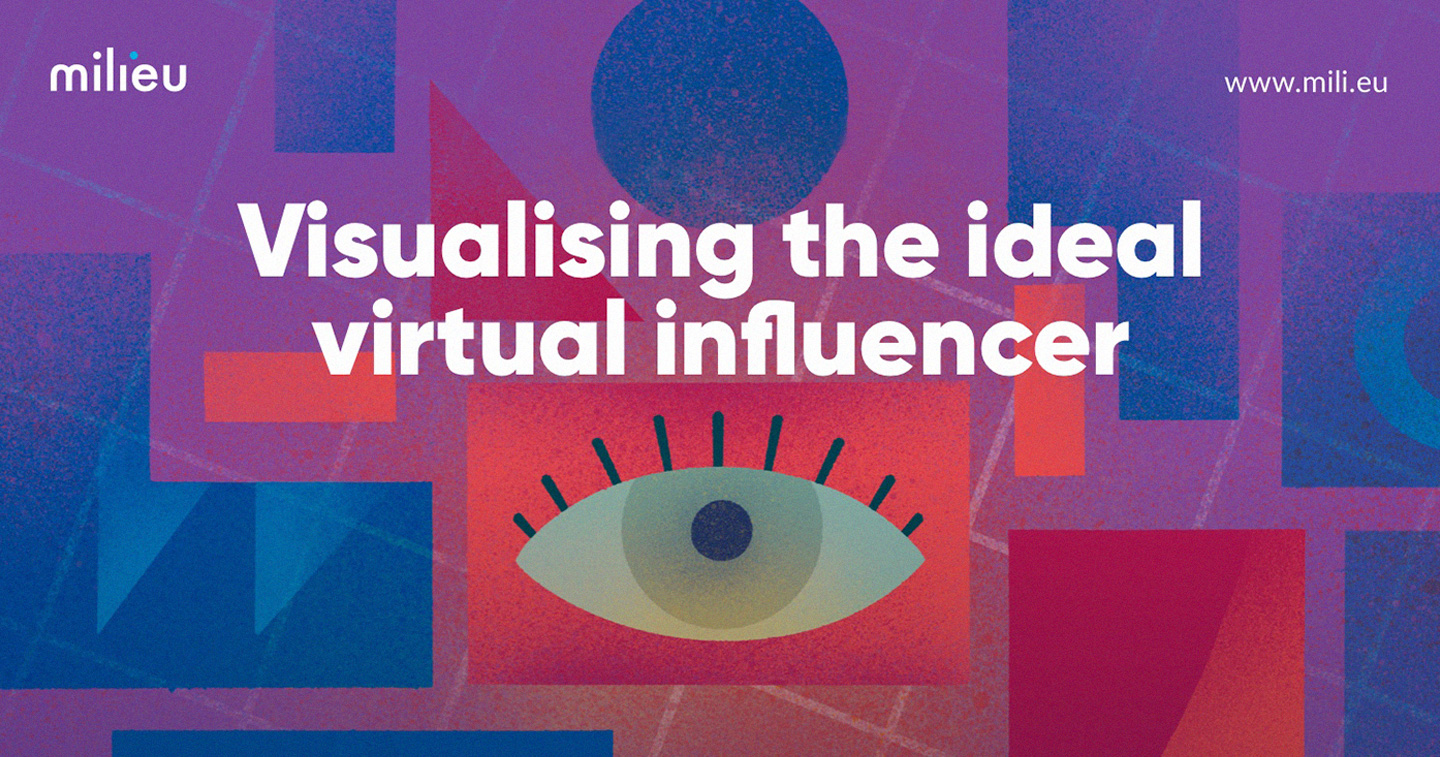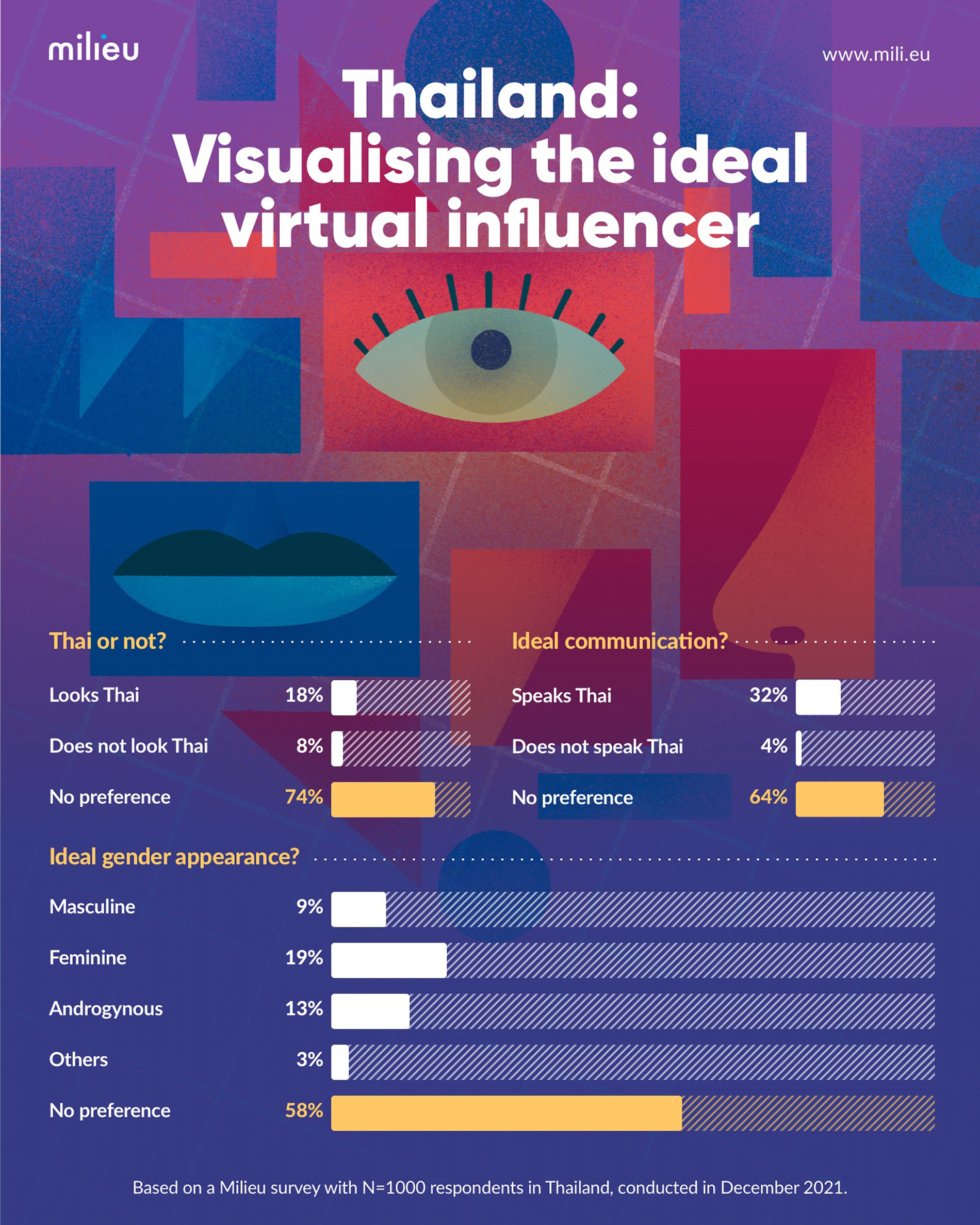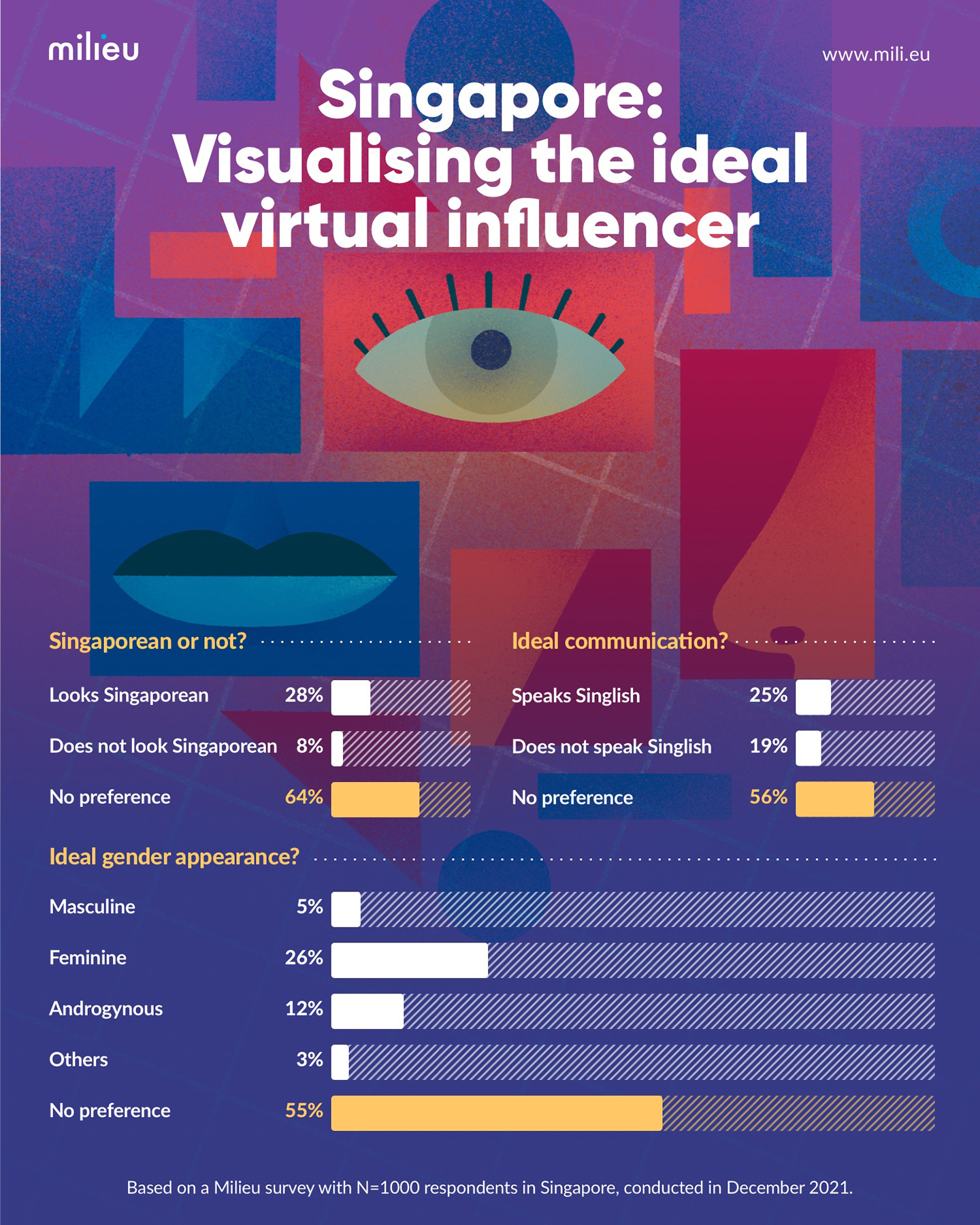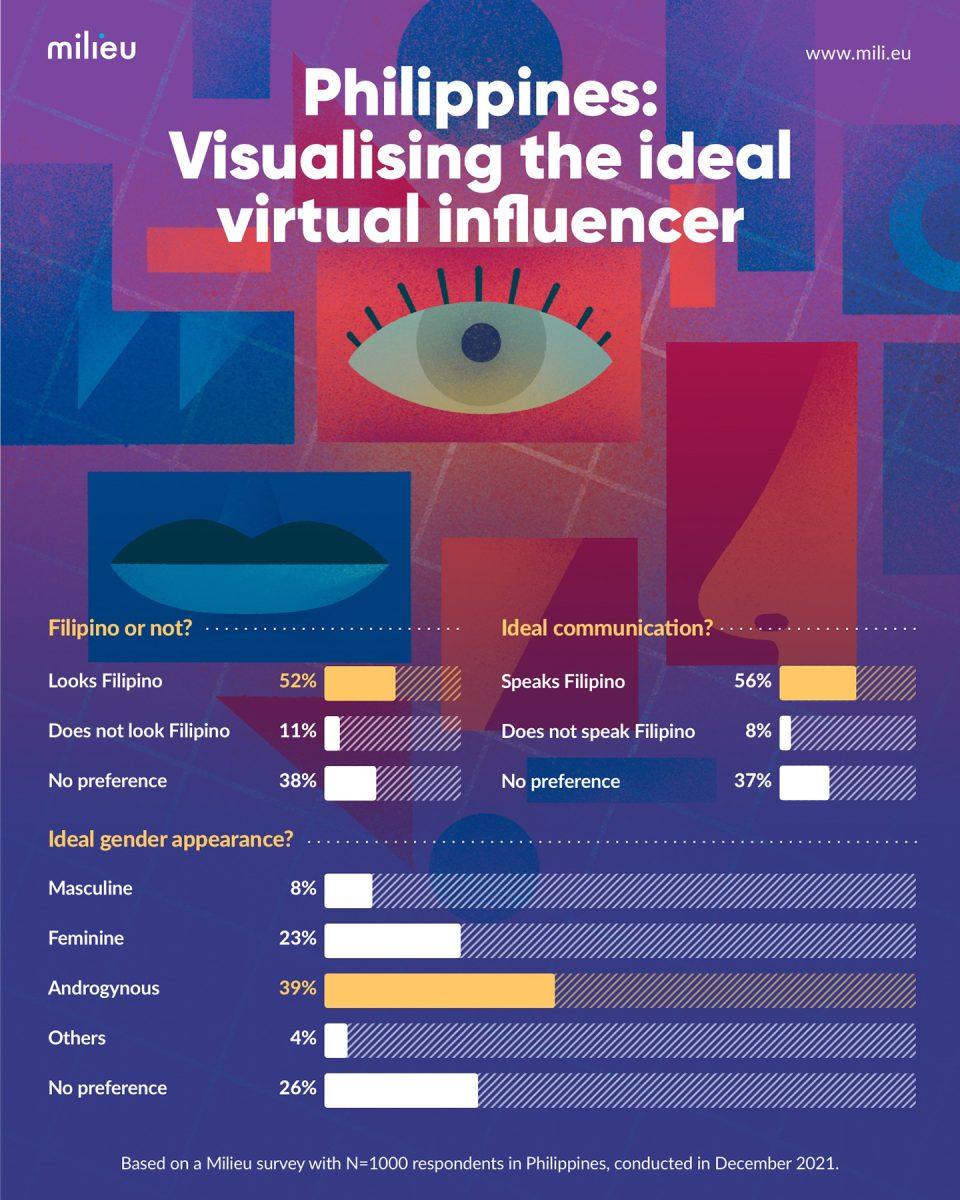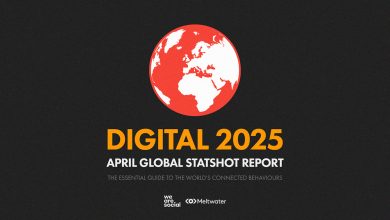SINGAPORE — While not quite as popular as human influencers yet, more companies are playing with the idea of marketing through virtual influencers. These computer-generated public figures almost have a life of their own – reflected on their social media accounts – and even work with brands to promote the latest products.
Milieu Insight released the results of their ‘Perceptions of Virtual Influencers’ study with N=6000 respondents in Singapore (N=1000 each from Thailand, Philippines, Vietnam, Singapore, Indonesia, and Malaysia)
Virtual influencers are new to consumers – and it’s probably a good thing
- Top-voted opinions about virtual influencers are ‘Interesting’ (50%) and ‘Cool’ (40%); opinions are generally positive; working with virtual influencers could potentially get some attention for the curious
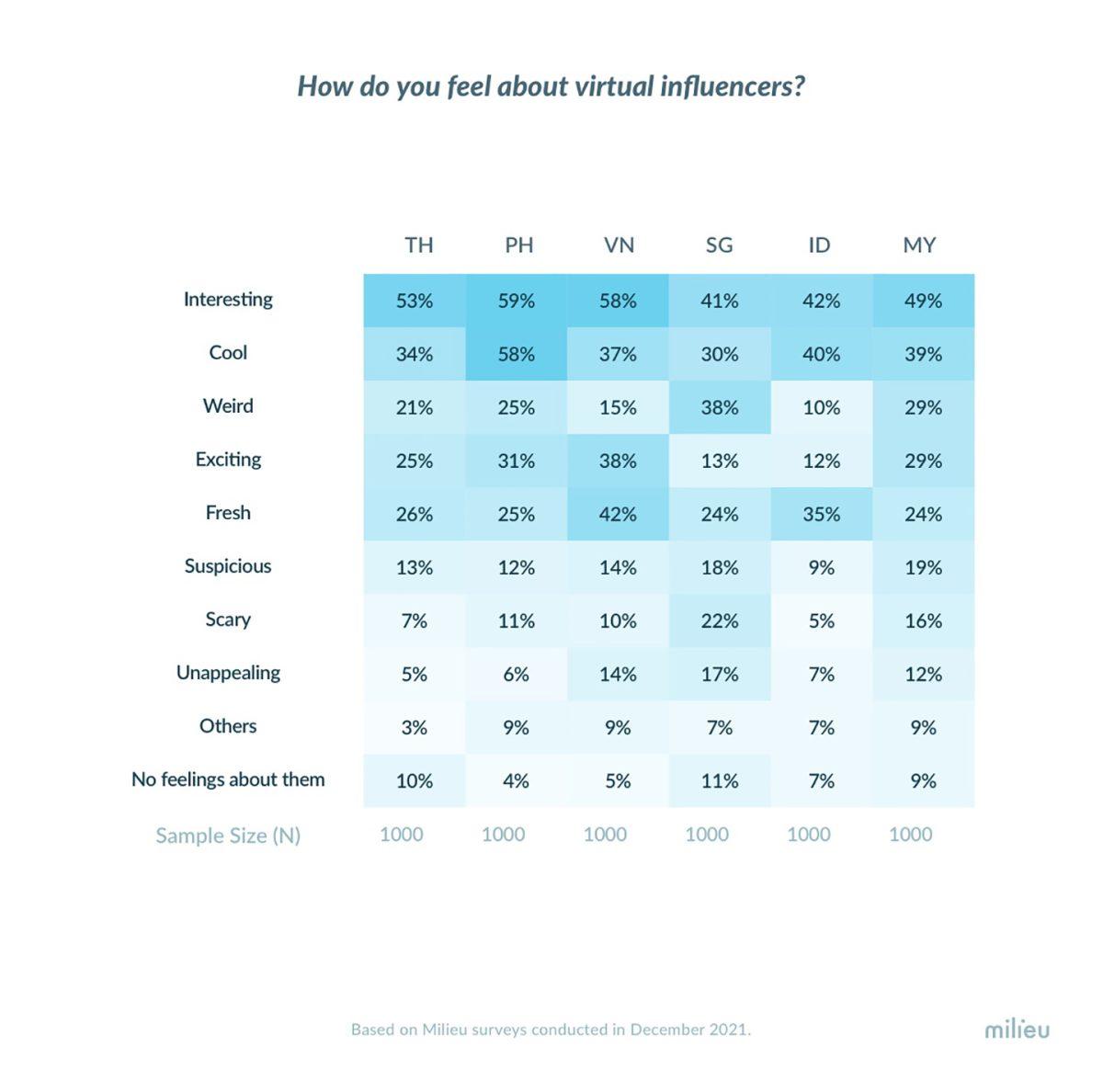
- Singapore, however particularly finds virtual influencers ‘weird’ (38%)
Virtual influencers are likely to continue to grow, but trust needs to be built
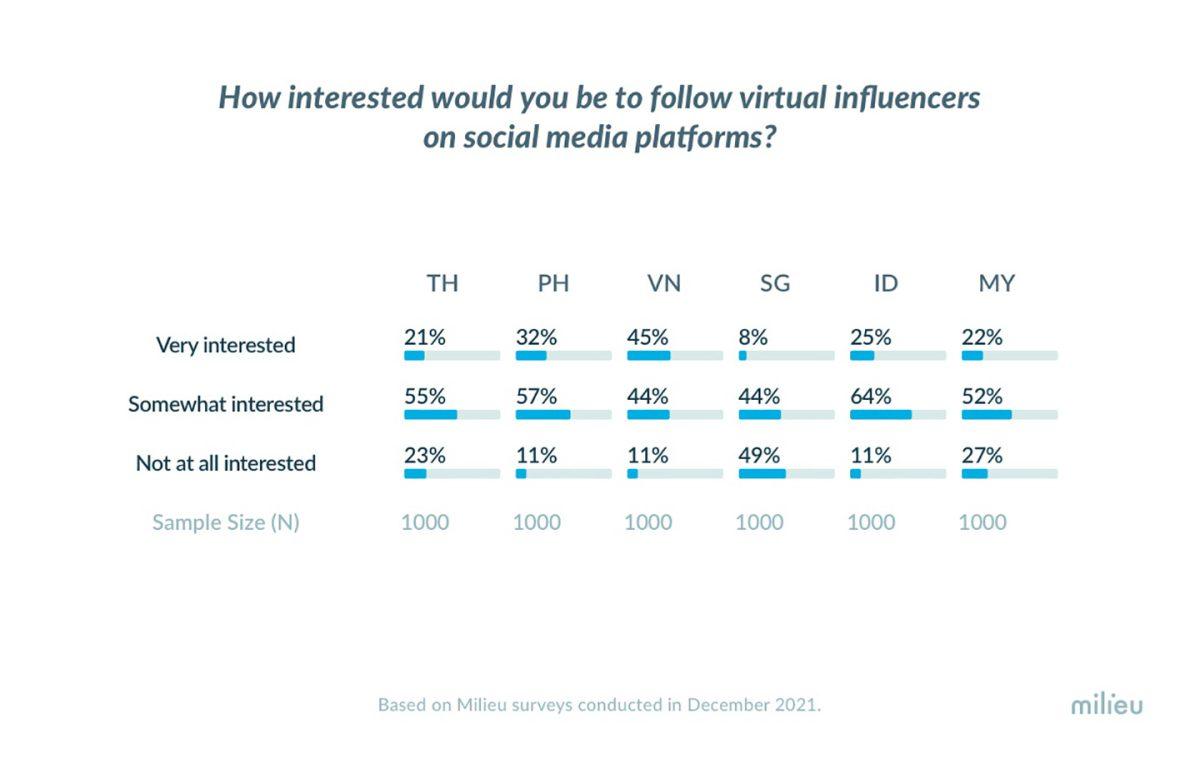
- 77% of Southeast Asians are very or somewhat interested to follow virtual influencers on social media, especially Indonesians, Filipinos, and Vietnamese

- However, trust needs to be built with virtual influencers – after all, the products they endorse are not truly tried and tested; only 12% think that they are more credible than human influencers, while 31% think that they are less credible than the latter
Bridging the gap – getting consumers to relate to virtual influencers
Milieu Insight surveyed respondents about the various characteristics of virtual influencers that they prefer, in terms of nationality, language, and gender appearance
- Thais generally don’t have a preference, while Filipinos, Vietnamese, and Indonesians tend to prefer if virtual influencers look and speak local
- Notably, 39% of Filipinos, more than the other countries, prefer virtual influencers who look androgynous, showing more acceptance towards non-binary
- Check out individual infographics for each market here
Methodology:
Based on Milieu surveys with N=1000 respondents each from Thailand, Philippines, Vietnam, Singapore, Indonesia, and Malaysia, conducted in December 2021.

